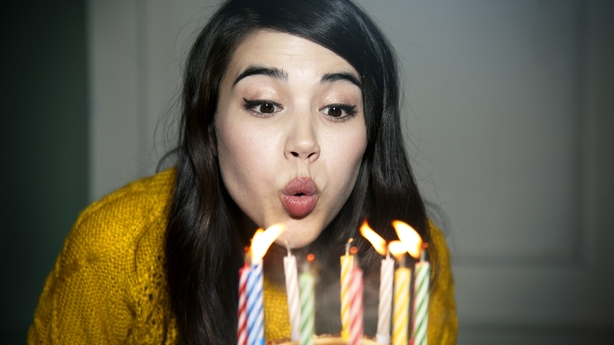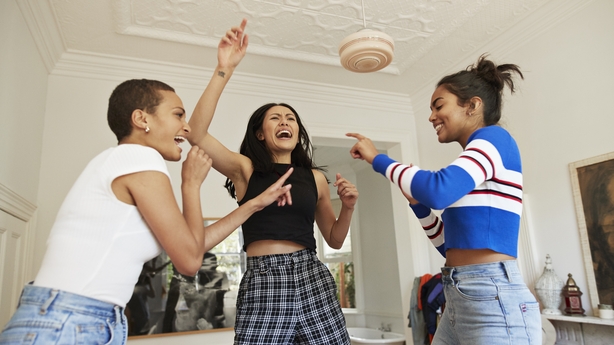Sustainability activist Fionnuala Moran and Associate Professor Carmel Hannan in the Department of Sociology at the University of Limerick joined Today with Claire Byrne on RTÉ Radio 1 to discuss the crisis of turning 30. Listen back above.
Why does the age of 30 provoke so much fear? No one expects a 20-something-year-old to have hit the society-approved milestones of having a house, a well-paid career, and a long-term partner, so what is it about hitting the big 3-0?
"I think we all get a bit anxious around birthdays," laughs Carmel. "Particularly what we're seeing in the data is that it's a trait of younger generations - particularly this rising anxiety level - because of the delayed transition into these adult roles.
"Everything is taking longer," she adds. "We're longer in education, it's taking longer to get a secure job, it's taking longer to buy a house, and therefore it has implications of finding a partner, having kids - all of these are occurring later in life."

Ultimately, though, Fionnuala says that turning 30 is all about having perspective.
"I'm 30, flirty and thriving," she laughs, having recently hit the milestone age. "I'm 13 going on 30 to buck the trends there," she says, explaining that, due to life experience, she has learned to view ageing as a "massive privilege".
While it's easy to assume that people in their 20s are having the craic in college, backpacking around the world, and living largely responsibility-free - waiting to face their burdens and obligations in their 30s - Fionnuala insists she had the opposite experience.
Working as a broadcaster and journalist, she felt that she had to work hard in her 20s to study up and get her foot in the door, but now feels like she can relax into things.
"We've never been exposed to more different lifestyles than we are now with social media," she adds, explaining that while some people she follows may be married with kids at 30, others will be packing up to travel the world at 40.

As well as age milestones, Carmel studies life markers and says that changes in norms, values, and attitudes will come into play when it comes to how we feel about our lifestyles.
"These markers really differ by your social class and your family background so there's quite a diversity," she explains. "Even though we conceptualise this as some sort of individual experience where you can explore different jobs and spend longer in college, it is shaped by these broad social forces.
"Fionnuala is an example of a generation who have this increased need for individual autonomy and a growing rejection of kind of traditional pathways," she continues. "In Ireland, we see rates of cohabitation have been creeping up, age of marriage is getting later, people are having kids later in life - most but not all."
Carmel notes that data also suggests a rise of insecure jobs in Ireland as well as a rise in 18-34-year-olds still living at home with family.
"There's quite a diversity of ways in which people in their 20s are experiencing their 20s."

While it may seem that norms are changing rapidly with the younger generations, Carmel points out that Ireland has always had "quite a late age of marriage and childbirth" compared to our neighbours.
"In a European, we've always been slow to get married, slow to have kids, slow to divorce, and slow to remarry," she laughs. "We take our time with all of these things, which is really great because people opportunities to go off and do their Masters or explore different jobs."
However, Carmel believes there are some downsides to this approach as these decisions often "hit home" with people in their late 30s and early 40s.
You can listen back to the full discussion on RTÉ Radio 1 above.
